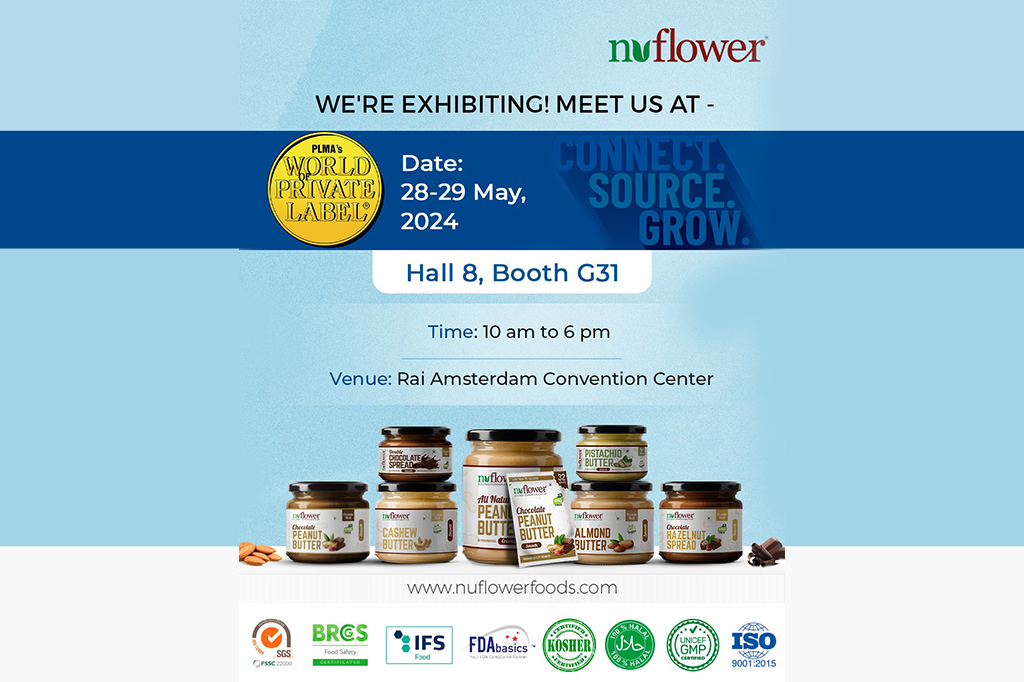The global food industry has witnessed a growing demand for peanut butter, and Europe is no exception. The European market for peanut butter has expanded significantly, driven by increasing health consciousness and the rising popularity of plant-based protein sources. Amidst this growth, the business model of white labeling, particularly by partnering with manufacturers in India, has emerged as a lucrative strategy for European brands.
The Growing Demand for Peanut Butter in Europe
In recent years, Europe has seen a significant rise in the consumption of peanut butter, fueled by changing dietary preferences and the increasing popularity of plant-based proteins. Traditionally a staple in American households, peanut butter is now making its mark on European tables, appreciated for its nutritional benefits, versatility, and convenience. This growing demand presents a lucrative opportunity for businesses looking to enter or expand within the European peanut butter market.
White Labelling: A Strategic Entry Point
White labelling is a strategic approach that allows businesses to market peanut butter under their own brand without the need for extensive manufacturing facilities. By partnering with established manufacturers like Nuflower, companies can focus on branding, marketing, and distribution while leveraging the expertise and economies of scale offered by their manufacturing partners.
This model is particularly advantageous for small to medium-sized enterprises (SMEs) and new entrants who might lack the resources to invest in large-scale production. White labelling enables these businesses to quickly introduce their products to the market, ensuring consistent quality and compliance with regulatory standards.
Partnering with Indian Manufacturers
India, a leading producer of peanuts, presents an attractive option for European companies looking to source high-quality peanut butter. Indian manufacturers offer several benefits:
- Cost Efficiency: The lower cost of raw materials and labor in India can result in significant cost savings, making the product more competitive in the European market.
- Quality Standards: Many Indian peanut butter manufacturers adhere to international quality standards, ensuring the final product meets European Union regulations.
- Diverse Product Range: Indian manufacturers often provide a variety of peanut butter options, including organic, natural, and flavored varieties, catering to diverse consumer preferences.
Key Considerations for Successful Partnerships
When partnering with Indian manufacturers for white-labelled peanut butter, European businesses should consider the following factors:
- Regulatory Compliance: Ensure the manufacturer complies with European food safety standards, such as the EU’s General Food Law Regulation and relevant ISO certifications. This is crucial for seamless import and market acceptance.
- Quality Assurance: Conduct thorough due diligence on the manufacturer’s quality control processes. Regular audits and quality checks can help maintain product integrity and consumer trust.
- Supply Chain Management: Establishing a reliable and efficient supply chain is essential. This includes securing consistent raw material supply, managing logistics, and mitigating potential disruptions.
- Cultural Compatibility: Building a strong relationship with the manufacturer requires understanding and respecting cultural differences. Clear communication and mutual respect are key to a successful partnership.
The Future of Peanut Butter in Europe
The future of peanut butter in Europe looks promising, with market analysts predicting continued growth driven by health-conscious consumers and innovative product offerings. White labelling, combined with strategic partnerships with Indian manufacturers, will likely play a significant role in shaping this market.
Businesses that capitalize on these opportunities stand to benefit from the increasing demand for peanut butter, not only by meeting consumer needs but also by establishing strong, sustainable supply chains. By focusing on quality, compliance, and effective collaboration, companies can create a compelling value proposition that resonates with European consumers.
The business of peanut butter in Europe is ripe with potential. White labelling offers a viable pathway for brands to enter the market quickly and efficiently, while partnerships with Indian manufacturers provide access to quality products at competitive prices. As the demand for peanut butter continues to grow, businesses that strategically navigate these opportunities will likely enjoy robust growth and sustained success in the dynamic European market.
If you are a business in Europe specifically interested in understanding white labeling for your business, visit Nuflower at PLMA between the 28th and 29th of May, at the Rai Convention Center in Amsterdam. Our team would love to meet you and walk you through potential opportunities to build a lucrative brand of your own.

